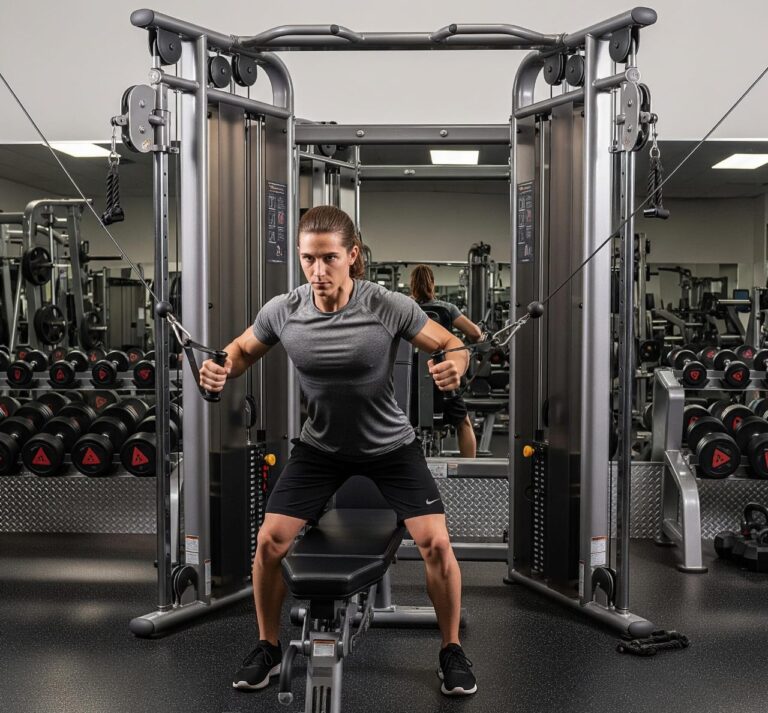Why Am I Getting Weaker in the Gym?
|
Getting your Trinity Audio player ready...
|
Why Am I Getting Weaker in the Gym?
Have you hit a wall in your gym routine? Maybe you’re slogging through all the usual gym exercises – deadlifts, squats, bench presses but instead of gaining strength, you’re mysteriously regressing. It’s a frustrating scenario: despite your effort, the weights feel heavier and the reps harder. The truth is, many hidden factors can make strength suddenly dip, even if you’ve been consistent. In this post, we’ll dive deep into why performance can stall or even decline, and how to address getting weaker in the gym. Along the way, we’ll bust some myths (like “more is always better”) and shine a light on real causes – from overtraining to diet to stress, so you can reclaim your gains.
Why Do I Feel Weaker in the Gym?
If you have been asking yourself, why am I getting weaker in the gym, you are not alone. Feeling weaker during workouts can be frustrating, especially when you have been training hard and expecting progress. Several factors can cause temporary dips in strength, and understanding them can help you bounce back stronger.
One common reason is insufficient recovery. Your muscles need rest to repair and grow stronger after each session. Overtraining without giving your body enough time to recover can lead to fatigue and decreased performance.
A Poor sleep, low calorie intake, or inadequate protein can also make you feel listless and limit muscle recovery. Additionally, dehydration or electrolyte imbalance can affect energy levels and endurance during your workouts.
Another, key factor is mental and physical stress. High stress levels or lack of motivation can interfere with focus and muscle activation, reducing your overall strength output. If you have recently changed your training routine, lifted heavier than usual or skipped warm ups, your muscles may simply be adjusting.
To get better your strength, take balanced nutrition, consistent to sleep, and active recovery. Track your progress, listen to your body, and give yourself some time, the strength is not lost overnight, and with the right approach, you will soon feel stronger than before.
Expectation vs. Reality: Myths in the Gym, Why Am I Getting Weaker in the Gym
It is easy to assume the answer is obvious, train harder, right? In reality, that more is-more mindset can backfire. For example, many believe that feeling wiped out after a heavy workout means failure. Temporary fatigue is normal: when you push muscles to the limit, you will feel weaker before you get stronger. According to exercise science, feeling weaker after a workout is not a flaw, it is part of the formula for muscle growth.
Likewise, another myth is that rest days are wasted days. Truth is, your body needs recovery time. Skipping recovery or packing workouts too tightly can cause long-term weakness. Or consider nutrition some lifters think a little protein shake will cover it, but poor fueling quietly saps performance. In short, expecting nonstop gains is unrealistic. Real progress often requires smart breaks, balanced food, and listening to your body’s signals.
Common Assumptions vs. Reality:
- “Train every day – no rest!” → Too much intensity without recovery leads to overtraining. Schedule rest/deload weeks to rebuild strength.
- “Eat anything if I work out hard.” → Inadequate fuel (not enough calories/protein/carbs) makes workouts drag. Eat a balanced diet around exercise.
- “Muscles grow only in the gym.” → Growth happens during sleep/recovery. Lack of sleep limits strength gains.
- “I should feel stronger every session.” → Plateaus happen. Feeling weaker sometimes is normal post-workout, but long-term decline needs change.
By challenging these expectations, you’re better prepared to spot the real culprits. Let’s turn to the concrete key insights behind gym burnout and how to address each one.
Key Insights: Why Strength Dips Happen
Figure: Even dedicated gym-goers can experience unexpected fatigue during workouts if recovery or nutrition is off.
Overtraining & Burnout: Getting weaker in the gym.
One of the biggest reasons lifters stall is overtraining. This happens when workout volume/intensity exceeds your body’s recovery ability. Each intense session causes microscopic muscle damage. Normally, you’d rest and grow back stronger – but if you hit the gym again too soon, the damage compounds instead of heals. You end up breaking down more tissue than you build. Clinically, overtraining syndrome includes persistent fatigue and declining performance. In practice, it feels like the weight that was manageable now crushes you, as your central nervous system and hormones get taxed. Cortisol (the stress hormone) remains elevated, which studies link to reduced muscle strength and mass.
Signs & Fixes: Look for nagging soreness, sluggish workouts, or moodiness. If you recognize these, take a planned break. Schedule 1–2 lighter weeks (called “deltoids”) every 4–8 weeks of heavy training. Use active recovery on off-days (stretching, foam rolling, light cardio) to boost blood flow. Above all, remember that strength gains happen between sessions – making rest as critical as the lifts themselves.
Inadequate Nutrition
Fueling mistakes are quietly deadly to strength. Your muscles need calories, protein, and carbs to recover and grow. If you consistently under-eat or skimp on protein, your body will cannibalize muscle for energy. MedlinePlus notes that insufficient calories or nutrients lead to tiredness and poor athletic performance. For instance, inadequate carbs force your body to break down muscle for fuel, while too little protein means fewer building blocks for repair.
Signs & Fixes: Notice you’re losing weight or energy? Track your macros: aim for at least 0.7–1 gram of protein per pound of bodyweight, and enough carbs to fuel workouts. Include healthy fats (omega-3s help recovery) and lots of micronutrients (vitamins/minerals) from vegetables and whole foods. A simple fix: prepare protein-rich meals or shakes after your gym exercises and see if your strength rebounds. A balanced diet is a foundation; improving it often pays off faster than adding more sets.
Figure: Proper fueling – like balanced meals of protein, grains, and vegetables – is crucial. Insufficient calories or macros can stall strength gains.
Poor Technique & Unbalanced Routine are getting weaker in the gym.
Technique issues or poor exercise order can sap strength, too. For example, if you always start with small isolation moves (like bicep curls) and only then hit squats or bench, your body is already tired for the big lifts. Likewise, sacrificing form for ego (e.g., half-rapping or jerking weights) means you’re not fully engaging the target muscles. Over time, weak stabilizers or imbalanced routines (too many curls but no back work) can diminish your overall strength and increase injury risk.
Signs & Fixes: Get a coach or record yourself to check form. Make sure your workout order prioritizes major lifts first (squat, press, deadlift, etc.). Drive through the full range of motion and proper tempo (control the weights). The CDC and fitness pros stress that correct form targets muscles effectively and prevents injuries. Re-learning basic technique (even with lighter weights) can unlock stalled gains.
Aging & Hormonal Changes: getting weaker in the gym
Lastly, if none of the above rings true, consider the gradual influence of aging. After your mid-30s or so, natural declines in growth hormone and testosterone can make strength harder to maintain. This is normal sarcopenia. While you can’t stop biology, you can mitigate it: staying active with resistance training slows the loss. Ensure adequate protein and perhaps consult a doctor about vitamin D or hormonal health if you suspect an imbalance. For most younger lifters, this isn’t the main issue, but it can explain stubborn strength loss in older athletes.
| Issue | Solution |
|---|---|
| Overtraining | Schedule deload weeks, prioritize rest |
| Poor Nutrition | Boost protein, carbs, calories |
| Lack of Sleep | Aim for 7–9 hrs quality sleep |
| High Stress | Manage with mindfulness, downtime |
| Plateau | Apply progressive overload |
| Poor Form | Reassess technique, lift order |
| Aging | Consistent training, balanced diet |
Conclusion of getting weaker in the gym & Next Steps
Feeling weaker in the gym is often not a sign to give up it’s a signal to adjust your strategy. As we’ve seen, lack of strength can stem from how you’re training (e.g., overtraining, monotony) as much as from how much. By treating your workout program as part of a holistic system – including sleep, nutrition, and mental health – you can turn the tide.
Try identifying one factor above that resonates (like adding an extra rest day, or sharpening your diet), and make a small tweak. Track your gym exercises and progress: even journaling a few workouts can reveal hidden patterns. Overcoming a strength slide is often just a matter of fine-tuning these details.
What’s Your Experience? Let us know in the comments: have you faced a training plateau or burnout? What changes worked to get you back on track? Sharing your story could help fellow gym-goers. And if you found this guide useful, consider subscribing to our newsletter for more in-depth fitness insights. Keep pushing smart, and your strength will rebound.











